Audi RS3 Sportback is tomorrow’s classic today
It may be one of the last of its ICE kind, but cars like the Audi RS3 Sportback represent the summit of a century’s evolution – and are a convincing reminder as to how far EVs still need to evolve
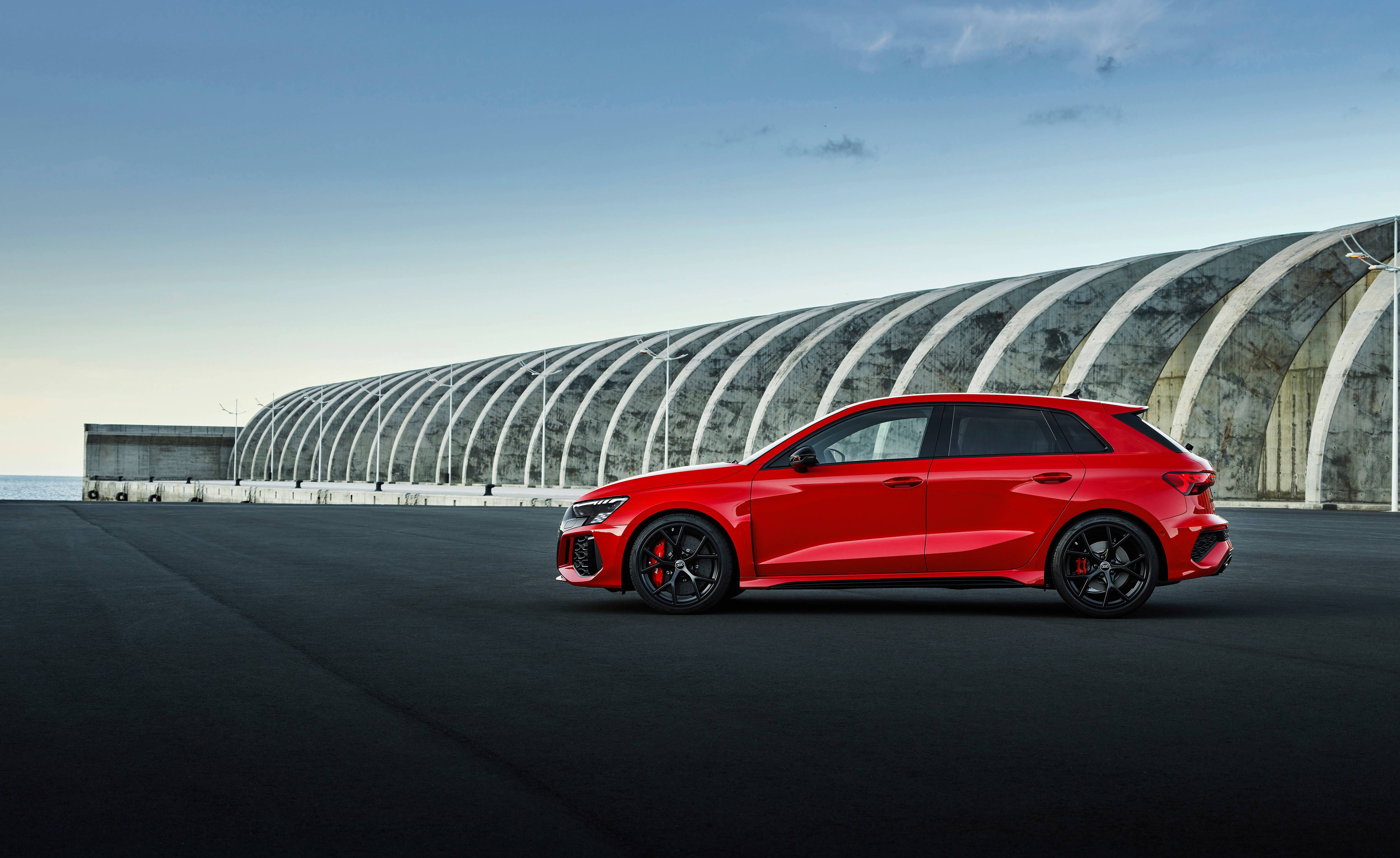
Sports cars look set to continue to burnish the image of a brand for the foreseeable future. With EVs still in their embryonic stage – certainly in terms of the mass market – the defining characteristic of most premium machines is power, and lots of it. The knock-on effect of batteries bestowing everyday automobiles with supercar-like levels of acceleration is that ‘traditional’ cars are left somewhat wanting.
Even the most spirited of sports cars can barely match the stats of a mid-range EV. Instead of out-and-out speed, the last days of combustion are becoming a celebration of the sound and fury of burning hydrocarbons in the most elaborate ways possible.
Audi RS3 Sportback
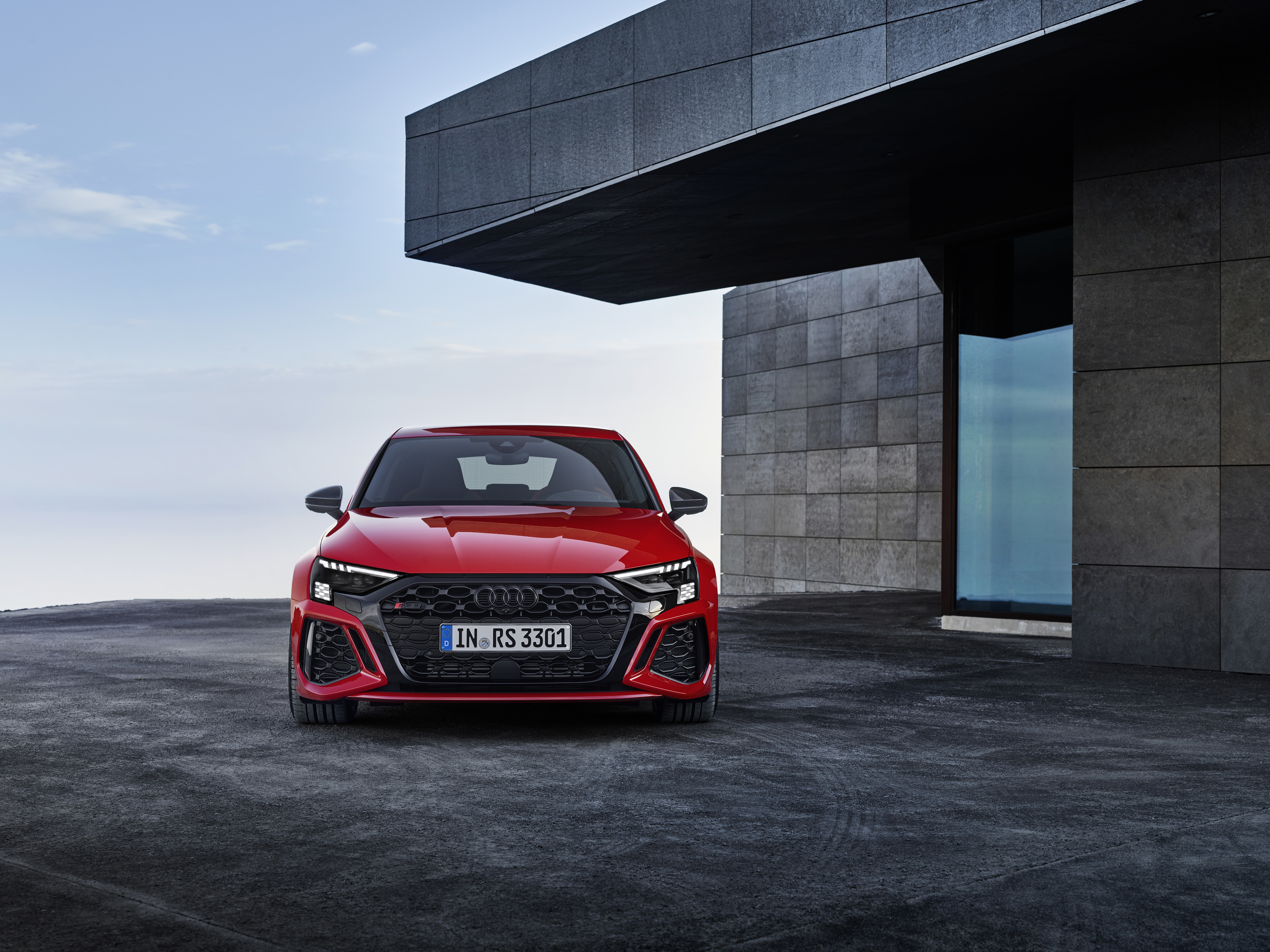
Audi’s high-performance ‘RS’ designation has jumped species from petrol-power to EV, losing none of the accelerative impulse but almost all its analogue savagery in the process. For the time being, there are still several trad RS models on the market, with power levels still being pushed to giddying excesses.
It is the last days of Rome for the traditionally fuelled car; powertrain engineers unable or unwilling to switch to battery-based propulsion have gone all out in seeing what they can do.
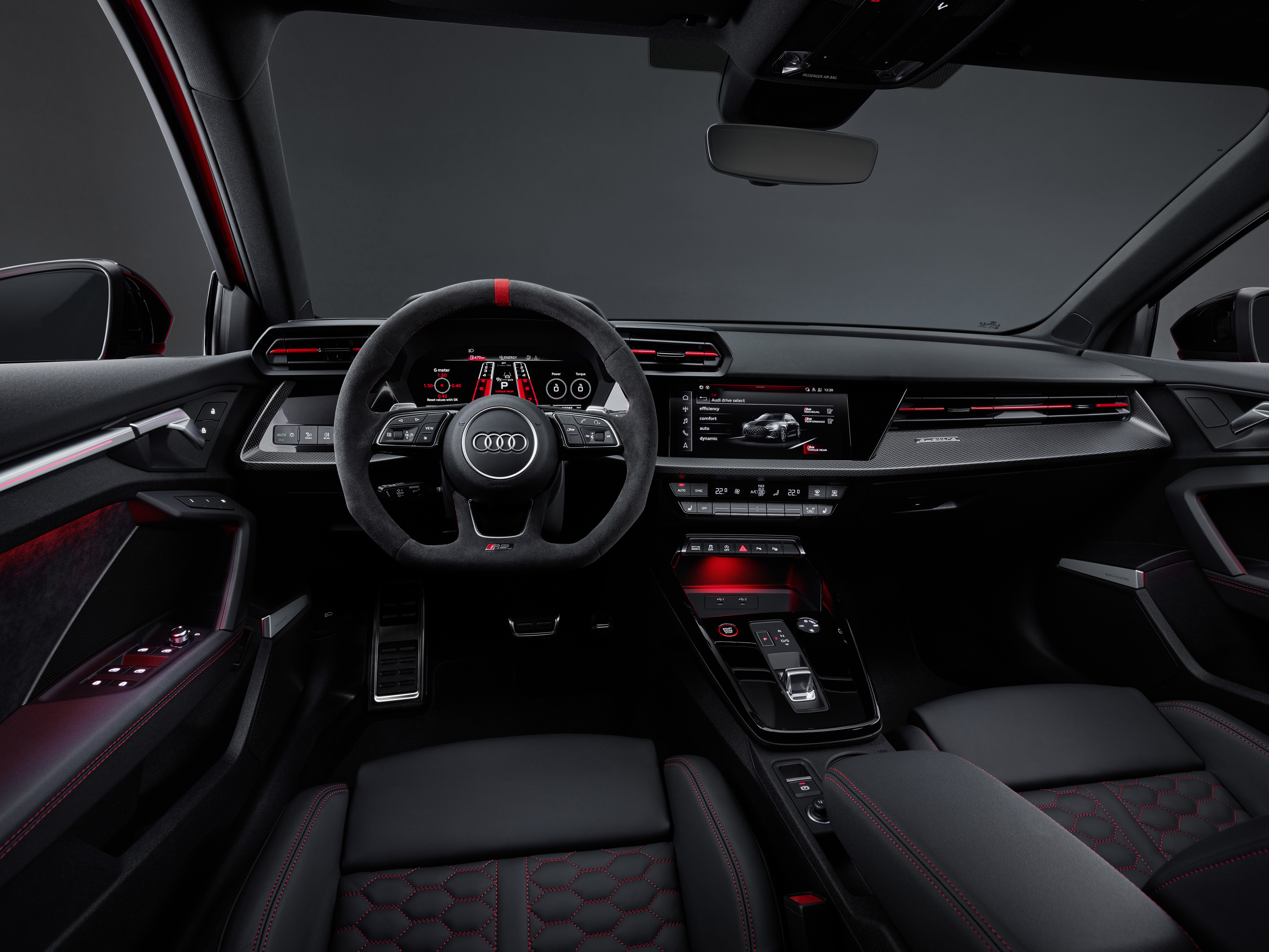
The smallest Audi RS is this, the RS3, available as both a saloon and a compact ‘Sportback’ estate car. Relentless upscaling means the RS3 isn’t really ‘small’ – it’s simply not ‘big’ by the standards ushered in by the SUV era. It still carries plenty of luggage, though.
Smaller cars will always make better driving machines, regardless of the quantities of power. You have more space on the road, more awareness of your surroundings, and a more immediate connection between the steering, chassis, and wheels.
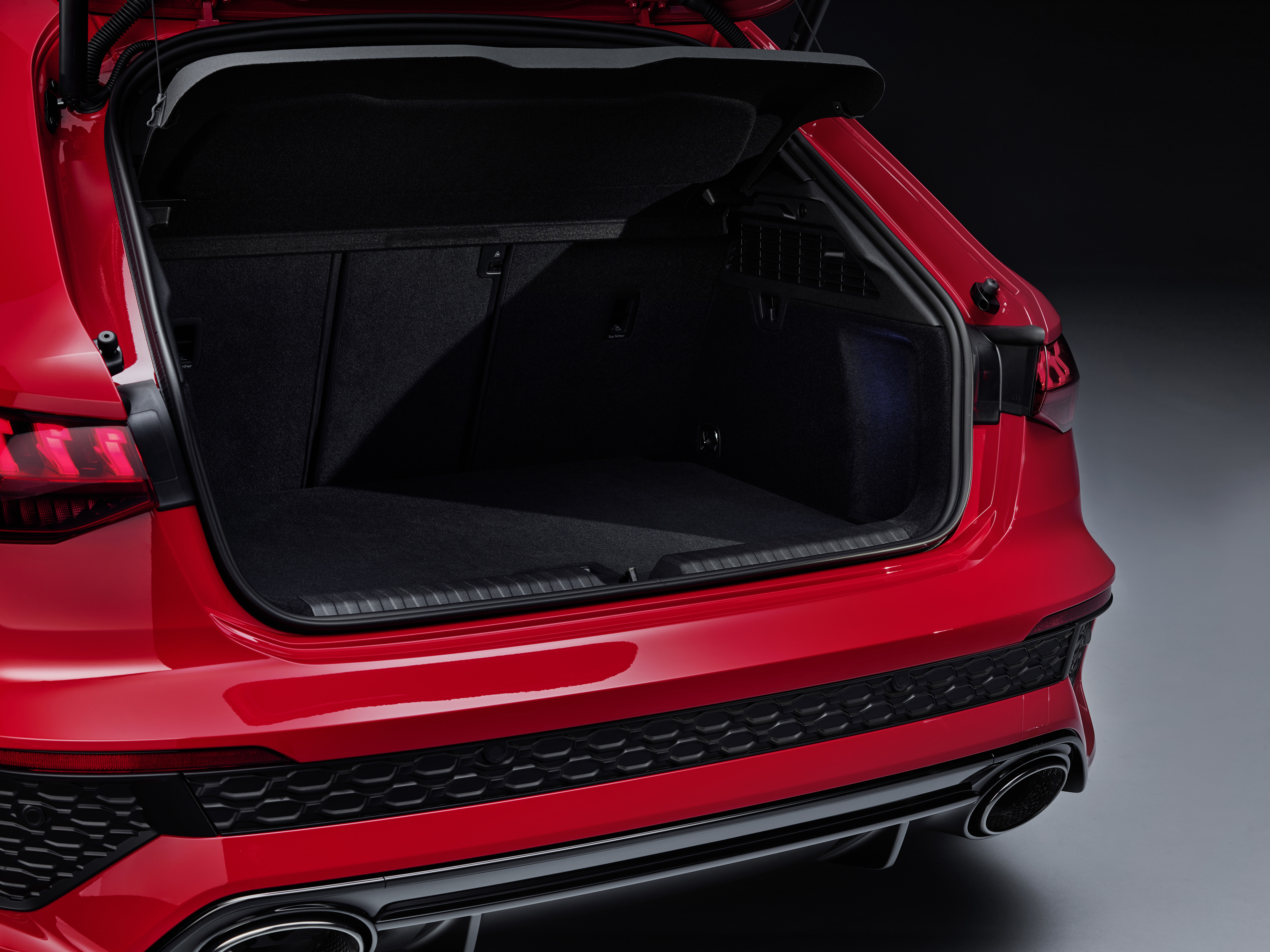
The headline figures here are more than respectable – a sub-four-second sprint to 62mph, around 400PS and 500Nm of torque (the amount of power sent to the wheels – it can also be cleverly applied to a single rear wheel for ‘controlled drifts on closed roads’, according to Audi’s literature).
Receive our daily digest of inspiration, escapism and design stories from around the world direct to your inbox.
As naysayers point out, EVs might be able to perform similar feats, but they can’t do so again and again and again like a traditional internal combustion engine. Batteries run too hot. They get depleted. Sadly, this argument is almost entirely irrelevant in day-to-day usage, given the increasingly limited opportunities to deploy extreme performance.
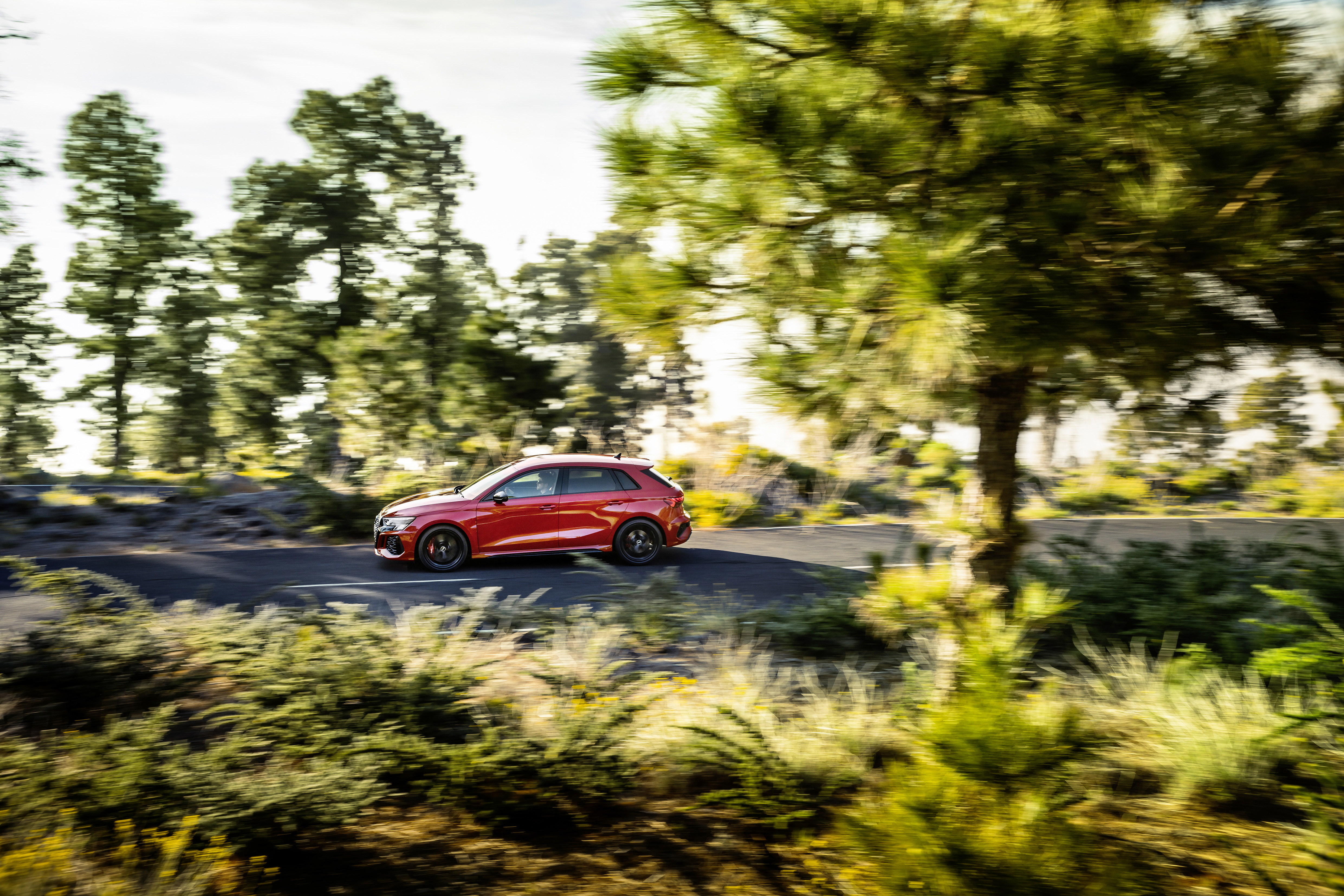
It might not beat an EV off the line, but the RS3 still excels over its successors in its handling and general dynamic feel. Audi has traditionally built sports cars with sharp, responsive steering and extremely rock-hard suspension, very often at the expense of comfort. The RS3 is no different, but at 1,570kg, it is substantially lighter than Audi’s (current) smallest EV, the Q4 e-tron, which comes in at around 2,135kg.
Batteries are the obvious culprit and it’s still an impossible task for engineers to completely cloak all that extra heft. The Q4 does its best, but the RS3 offers a convincing reminder as to how far EVs still need to evolve, darting around corners and conjuring a convincing EV-like surge from its 2.5-litre 5-cylinder engine.
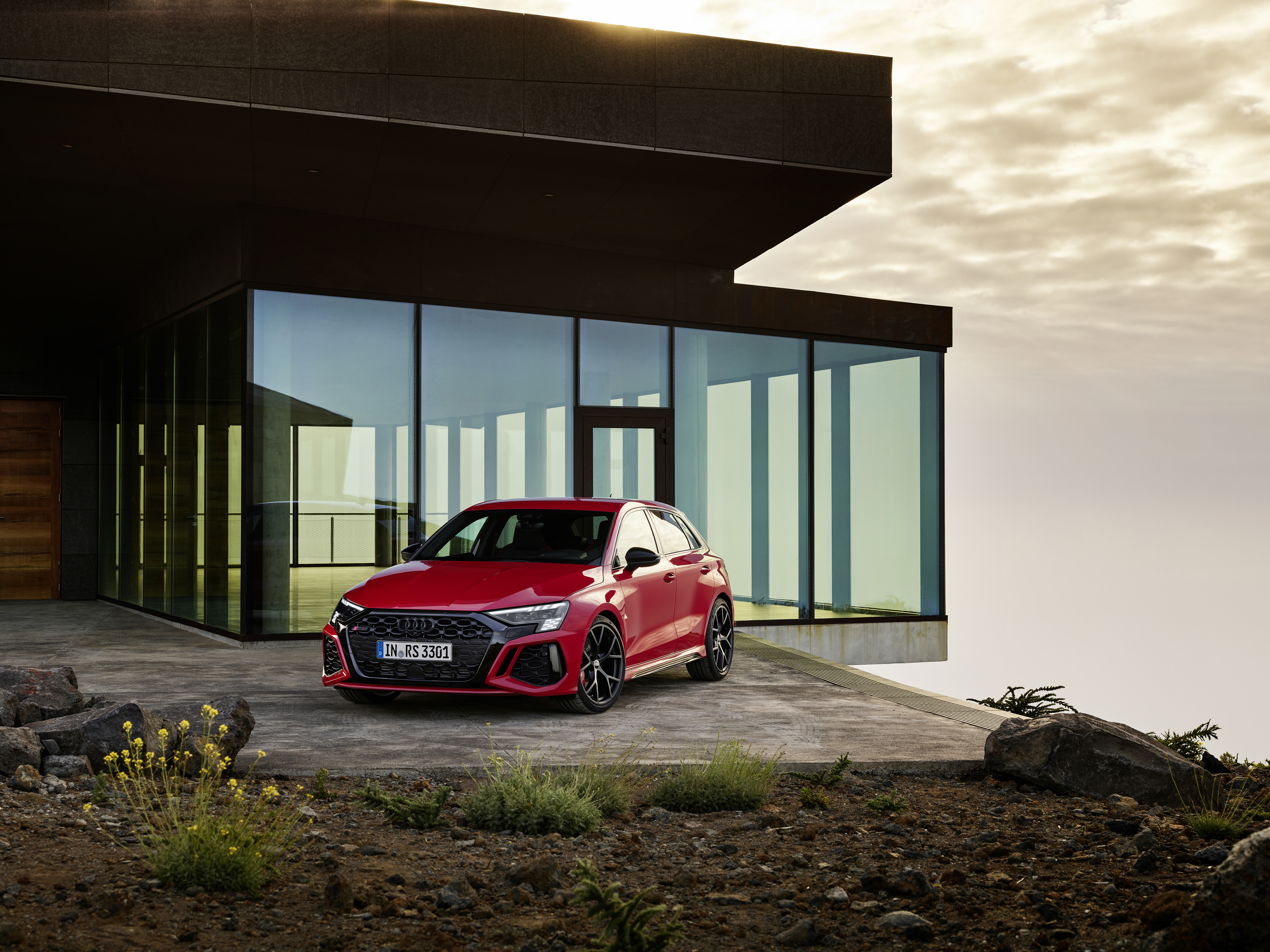
The upshot of all this is that Audi still appears to be better at making petrol-powered cars than it is at electrics. While there’s nothing inherently wrong with the e-tron, or the e-tron Sportback, or the Q4 e-tron, or the e-tron GT, the company’s strengths are still better channelled through traditional technology. For now.
Audi’s future focus is almost entirely on EVs, with a generous side order of autonomous driving (see recent concepts like the Audi Skysphere). However, we’re going to be stuck with internal combustion engines for a couple more decades at least. For most of that time, petrol-powered vehicles will only be available second-hand – second-class automotive citizens in a zero-emission world. But given that they represent the summit of a century’s evolution, run-out models like the Audi RS3 are inevitably destined to become a future classic.
INFORMATION
Audi RS3 Sportback, from £52,520
Jonathan Bell has written for Wallpaper* magazine since 1999, covering everything from architecture and transport design to books, tech and graphic design. He is now the magazine’s Transport and Technology Editor. Jonathan has written and edited 15 books, including Concept Car Design, 21st Century House, and The New Modern House. He is also the host of Wallpaper’s first podcast.